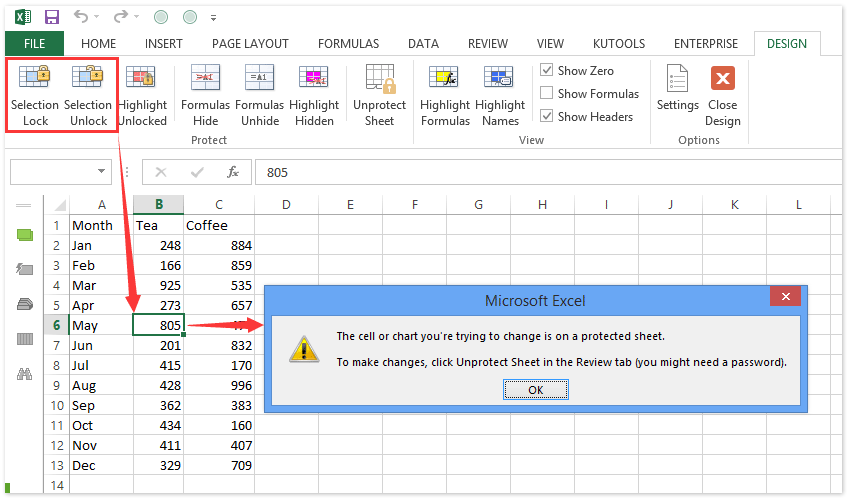5 Ways to Lock Your Excel Sheet in Place

Microsoft Excel, a tool that has become indispensable for many in the corporate and academic world, is not just about crunching numbers. It's also about safeguarding critical data from unintended modifications, prying eyes, or even accidental deletions. This is where learning how to lock your Excel sheet in place becomes essential. Here are five strategies to help secure your Excel spreadsheets and protect your valuable data.
Method 1: Protecting the Entire Worksheet

To ensure that no one can modify any part of your worksheet:
- Open the Excel workbook you wish to protect.
- Select the Review tab on the Ribbon.
- Click on Protect Sheet.
- A dialog box will open where you can:
- Set a password (if desired) to unprotect the sheet later.
- Choose what actions others can perform on the protected sheet.
- Click OK to apply the protection.
🔒 Note: Remember your password! There is no way to recover a password if you lose it.
Method 2: Selective Protection

Suppose you want to allow modifications in specific cells while locking the rest. Here’s how:
- Click in any cell, then press Ctrl + A to select all cells.
- Right-click and choose Format Cells.
- In the dialog, navigate to the Protection tab.
- Uncheck Locked to ensure that by default cells are not locked.
- Select the cells you want to protect, go back to the Format Cells, and check Locked.
- Now protect the sheet using the same steps as in Method 1.
Method 3: Protecting the Workbook Structure

If you don't want others to move, delete, or rename sheets:
- Go to the Review tab.
- Select Protect Workbook.
- In the dialog that appears, you can:
- Check Structure to prevent changes to workbook structure.
- Set a password if needed.
- Click OK.
Method 4: Using Excel's Data Validation Feature

To restrict input in cells:
- Select the cells you want to control.
- Go to the Data tab.
- Click Data Validation.
- In the Data Validation dialog, you can:
- Set criteria under Settings (e.g., whole number, date, time).
- Provide an input message to guide the user.
- Set an error alert to prevent invalid data entry.
Using data validation adds another layer of protection by ensuring that only the correct type of data can be entered into specific cells, reducing the chance of data corruption or errors.
Method 5: Password-Protecting Your Entire Workbook

For a more comprehensive security measure:
- Click File > Info.
- Choose Protect Workbook, then Encrypt with Password.
- Enter your password and re-enter it to confirm.
- Click OK to lock your workbook with a password.
This method ensures that no one can open the file without the password, providing a robust layer of security for your Excel workbook.
When it comes to securing your Excel sheets, employing one or a combination of these methods can significantly enhance data protection. Each method serves a different purpose, from preventing modifications and movement of sheets to controlling data input and ensuring the entire workbook is secure. By choosing the right protection method or combination, you can tailor the security of your Excel work to meet your specific needs, ensuring peace of mind regarding the integrity of your data.
🔑 Note: Use the most comprehensive security measures when the data is critical, combining several protection methods for maximum security.
As you navigate through your Excel worksheets, remember that protecting your work is as vital as the analysis you perform. By mastering these methods, you'll not only keep your data intact but also maintain the confidentiality and accuracy of your work.
Can I lock specific cells in Excel?

+
Yes, you can lock specific cells by using the selective protection method. You’ll need to unlock all cells first, then lock only the ones you want to protect, and finally apply sheet protection.
What happens if I forget the password for my protected Excel sheet?

+
If you forget the password, there is no way to recover or reset it. Always remember your password or keep it in a secure location.
Is it possible to protect the structure of a workbook without a password?

+
Yes, when protecting the workbook structure, you can choose to do so without a password. However, without a password, users can unprotect the workbook structure themselves.
Can data validation provide security in Excel?

+
Data validation is more about data integrity than security, as it controls what can be entered into cells. It doesn’t prevent editing or unauthorized access to the workbook, but it does ensure that the data entered meets your specified criteria.



